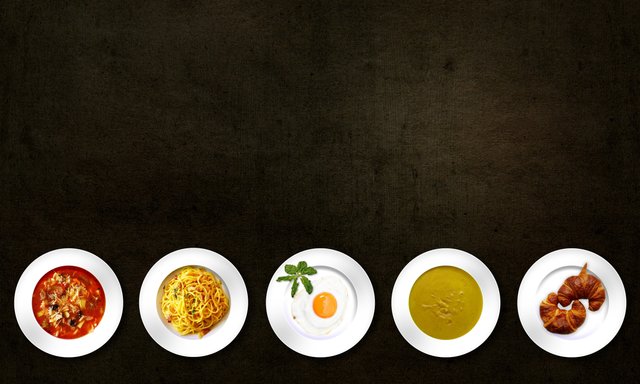Top 5 food myths busted!

There is a kernel of truth behind most food and nutrition myths. We are here so that you can separate the science from the silliness by yourself. Some nutrition myths die in the face of what seems to be incontrovertible evidence, while others keep bouncing back.
This is because a myth or a misinformation is much more seductive that the truth. The best course for fighting diseases and staying healthy are a balanced diet, enough sleep and regular exercise. But these fail to interest people.
Read on, only if you are ready to have your longstanding beliefs about certain foods busted.
Eggs
Eggs contain about 211 milligrams (mg) per large egg. This is a substantial amount of cholesterol (the fatty stuff in our blood contributing to clogged arteries and heart attacks) in the yolk. But the cholesterol we eat, in any food including eggs, does not have a huge impact on raising our blood cholesterol for most of us. The body simply manufactures less cholesterol by itself as a compensating act.
When you label eggs as bad for the heart, you connect the wrong dots. Saturated fats and trans fats are the chief heart-disease culprits, because they have much greater impact on raising blood cholesterol. A large egg contains no trans fats and only 2 grams of saturated fat.
But remember, you should limit your cholesterol intake to less than 300 msg daily. It becomes less than 200 mg if you have a history of heart problems or diabetes. You can have two eggs over the course of the week in this case. So make room for eggs in the rest of what you are eating and they will fit in.
High-Fructose Corn Syrup (HFCS)
One of the urban myths that sounds right but is basically wrong is that High-Fructose Corn Syrup is worse for you than sugar. The composition of HFCS is almost identical to that of sucrose (table sugar), because it was created to mimic sucrose. Both HFCS and sucrose have very similar effects on blood levels of glucose, insulin, satiety hormones, and triglycerides. While it is not better than table sugar, it is also not worse.
When you consume large amounts of added sweeteners, you are at greater risk of fatty liver disease, insulin resistance, heart disease and type 2 diabetes. This is not because of the extra calories that they provide. The fructose in them may be hazardous to our health too.
HFCS, despite its name, contains only a little more fructose than sucrose does. What matters is the amount of sweet stuff we consume. Too much agave syrup, dehydrated cane juice, or agave syrup would likely cause the same health problems.
Carbohydrates
There is nothing inherently fattening about carbohydrates. What makes you fat, is eating too many calories. If you load up on sugary and refined-carbohydrate-rich foods, like pasta, doughnuts, and white pasta, it can raise your risk of developing health problems like diabetes and heart disease.
But there are good cards too, like whole grains, fruits, beans, and vegetables. If you are missing out on them, you are cutting out your body’s main source of fuel as well as vital nutrients and fiber. Many white foods like cauliflower, mushrooms, garlic, onion and leeks are high in nutrients.
Quality counts. All carbs are not created equal. Banishing carbs is not really the best plan of attack to tone up, slim down and feel your best. You need to ask what is the source of cards that would provide you with more nutrition.
Raw-food diet
When it comes to raw food, you do not get the nutrient losses that come with cooking. Some raw-food advocates, though, claim that eating raw boosts digestion because they preserve vital plant enzymes. But for human health, they are not essential, since they are made for the survival of plants.
Plant enzymes are inactivated when you heat a food above 118 degrees Fahrenheit. This is because enzymes are proteins and proteins break down with heat. But the overall contribution of these enzymes is minimal to human digestion.
Some people also claim that by eating more foods with the enzymes intact, we will be able to spare our bodies from using up its limited lifetime supply of enzymes. But the reality is that the human body is very efficient in producing enzymes, as they are vital to life. You do not have a finite number of enzymes, and will continue making them as long as you live.
Proteins
Proteins can help you feel fuller and aid in muscle recovery, growth and maintenance. But that does not mean that adding protein to everything is healthy. Only protein cannot build or maintain muscle mass and strength. You need exercise for that. Although it is true that without the full suite of essential amino acids found in food sources of protein, your body cannot repair or generate muscle properly.
Like carbohydrates, all proteins are not created equal. Plant proteins are not complete sources of essential amino acids, while animal proteins are. Too much protein can also make you fat, instead of supporting muscle health.
What you need to do is swap carb calories for protein calories. Excess protein calories will not turn into muscle magically. It is important to have a balanced diet focusing on all of the necessary nutrients to lose weight in a healthy way.
Final words
Now that we have busted the food myths for you, do not fall into one of these traps. Set yourself free and this new knowledge might even help you lost weight, build muscle, and lead a healthy life.